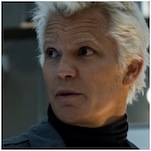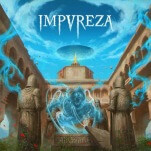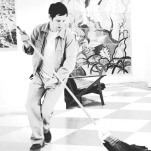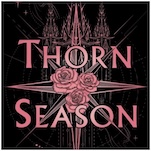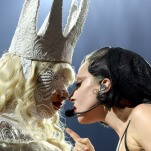Nathan Barley: 10 Years Old and More Relevant Than Ever
The British sitcom Nathan Barley is ten years old, and it is still painfully, searingly relevant.
The titular character of Nathan Barley is what people might be tempted to call the “proto-hipster.” He describes himself as a “self-facilitating media node” and he is the alpha male of massive tech-fetishist Shoreditch twats. (That’s “Williamsburg twats” to you New Yorkers.) His main method of transport is a child’s neon yellow bicycle. His mobile phone splits in half to become “mp3 decks” so that he may obnoxiously scratch records at the back of the bus. His ringtone is a chainsaw noise to the sound of a man screaming. He is obsessed with putting facile shit on his website trashbat.co.ck (which still exists online), is an incredible sadist, a voyeur, and is devoted to the use of offensive or disgusting language. He is a man who will appropriate almost anything from culture to stay relevant. When he is in bed with a woman (a miracle) he puts on Dub and grinningly raps about the sex acts he is about to do on her. He is a white man who calls other white men “my n*****” because he thinks it makes him relevant. He is simply the most offensive person I can even think of, and this program exists solely to point out how terrible he is and how that seems to pay off. It’s such a powerful character that if I met the actor who portrayed Nathan Barley, I’d immediately feel annoyed.
We are living in an era in which you can make money from asinine videos of petty japes and racist and offensive language on Youtube more easily than Nathan Barley creators Charlie Brooker (Black Mirror, Newswipe) and Chris Morris (Brass Eye, Four Lions, The IT Crowd) ever envisioned. I also live in an era, and work in a business, in which people fervently watch “unboxing” videos of special edition videogames—where someone will just take a new game out of a box and show you what is in it and you tune in to watch. I personally will sit and watch ten second videos of cats falling off tables for hours for very little reason other than they’re pointless and amusing and at my fingertips. You can put almost anything up there and there will be a person out there who thinks your obnoxious shenanigans are great. There are more Nathan Barleys these days than ever before and everyone is an accomplice to him.
I’d be kind of remiss if I didn’t say that since my first viewing of Nathan Barley, I have both interviewed and worked for Charlie Brooker, the co-writer and inventor of this show. But I was pretty much already indoctrinated by the virtues of the show by the time those opportunities arose, because the first time I met Charlie Brooker I asked him about Nathan Barley. He told me that he thought that the show had predicted the rise of Youtube. No one back in 2005 was really using Youtube: it was too slow to load, and the video diary hadn’t really taken off in the way that Nathan Barley is portrayed as investing in. This is probably one of the reasons that the ratings for the show were low at the time (but sales of the DVDs would turn out good). It has become more relevant as time has gone on.
The thing is, if I didn’t know a fair amount about Brooker’s career I’d think that Nathan Barley is purely an attempt to lampoon young people in a brush-off of epic proportions. The reason I know that isn’t true is that, well, he told me he saw a lot of rich twats writing screenplays in cafes in Notting Hill, which is what inspired it, and because the Nathan Barley character Dan Ashcroft exists.
Dan Ashcroft is an arse who is aware that he is an arse and is just really bad at getting a job that doesn’t require him to be an arse. He writes for a magazine called Sugar Ape, although the lead creative has redesigned the logo so that it deliberately looks like the more offensive Suga Rape. There is much to suggest that this publication is meant to be a piss take of VICE magazine, to the extent that there is an episode where Dan Ashcroft forces himself to have “straight-on-straight gay sex” with a builder in a pub toilet to write a piece for the “Vice edition”.
The first episode sees Dan Ashcroft write what would now be called a “thinkpiece” (but back then was probably just an opinion) entitled “The Rise Of The Idiots”, in which Ashcroft outlines his hatred for the Nathan Barley figure (“they babble into handheld twit-machines”) and his joke-obsessed, teen-mentality Sugar Ape colleagues. The piece ends with the sentence “The idiot doesn’t think about what he says, thinking is rubbish, and rubbish isn’t cool.” It skewers everyone in the spectacle-obsessed culture he sits in.
The piece, in modern parlance, “goes viral”, and everyone knows Dan’s byline. But essentially he has made Sugar Ape more popular just by writing about how much he hates the Sugar Ape culture. Ashcroft tries to escape Sugar Ape to write for the Weekend On Sunday, and the interview is probably one of the most painful interview scenes ever committed to television; Ashcroft realizes that writing about anything other than the facile culture he is already immersed in is way, way out of his depth. At the culmination of Dan Ashcroft’s interview for a prospective column on wine they ask him which wines he likes. He lists regions, ending in “Dutch.” At this moment I always want to pour some ketchup on my knuckles and proceed to eat my own hand.
-

-

-

-

-

-

-

-

-

-

-

-

-

-

-

-

-

-

-

-

-

-

-

-

-

-

-

-

-

-

-

-

-

-

-

-

-

-

-

-





